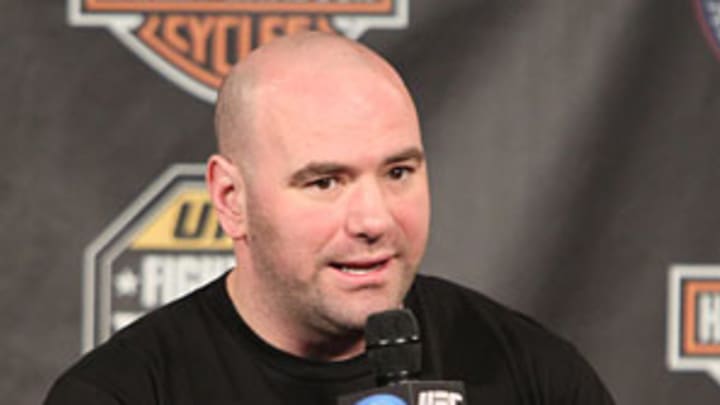UFC insurance coup may help with MMA regulation in New York state


Of the many seismic shifts in the MMA landscape over the past few years, it's a little strange that something as seemingly mundane as health insurance would prove to rank among the biggest.
Let's face it: there's nothing sexy or exciting about insurance of any kind. Conversations about premiums and co-pays don't raise many pulses unless they're driven by indignant rage over the unjust application of either.
But ask any UFC or Strikeforce fighter this week, and they'll tell you that their employer's decision to extend year-round, out-of-competition health insurance to the employees who are most likely to need it is one of the best things to happen to them of late. It's also a timely development for the sport and for the UFC, but we'll get to that later.
First, it should be noted that Zuffa, which owns both the UFC and Strikeforce, isn't actually the first MMA organization to extend health insurance benefits to fighters. While most major promotions will pay the cost of medical treatments for any injuries sustained in the fight, the defunct IFL organization was the first to offer fighters some form of health insurance outside of paid competition.
I know because I worked for them at the time, and since they had their office staff covered by the same insurance company that covered the fighters -- and since insuring people who hurt themselves for a living is, not surprisingly, incredibly expensive -- we changed providers often enough that to this day I can still fill out an insurance questionnaire faster than anyone I know. (Sadly, this does not impress people at parties)
The point is, finding an insurance plan for 350 professional fighters isn't easy or cheap, and despite what the more cynical among us might think, it isn't something you can do overnight just to quiet any talk of a union. Even if it were, wouldn't the point of a union be to get increased benefits, such as this one? If merely talking about a union were enough to make employers cave in with costly concessions, creating and sustaining unions probably wouldn't be so historically difficult.
At the same time, this development does come at an interesting time for the sport as a whole, and Zuffa in particular.
The same week the UFC announced the big insurance news also happened to be the week of its annual "fighter summit" in Las Vegas. Fighters from the Strikeforce and UFC rosters were flown in to listen to long talks about concussions, financial planning, and the correct use of social media, among other topics, and from the sound of things it actually sounds like at least a few of them learned a thing or two (about Twitter, if nothing else).
In short, the fighter summit is similar to the kind of athlete symposiums that other major pro sports have been doing for years. Then again, so is the health insurance.
MMA fans and pundits have spent much of the last decade opining on what it will take for the sport to break into the mainstream. Exactly what the mainstream is and how you know when you've broken into it, that seems like an even trickier question, but my feeling is that the ability to bring hundreds of top fighters under one literal roof to tell them that they now have the same employment-based health insurance that office workers enjoy is probably a good start.
It also goes a long way to silencing some of the critics who have used the UFC's treatment of fighters as a cudgel to beat back attempts at getting the sport regulated nationwide. As reported by MMAFighting's Ariel Helwani, a memo circulated in New York by union group UNITE HERE recently pointed to the lack of "outside-the-ring protections" for fighters as one of many reasons to keep MMA (and the UFC specifically) out of the state.
Simply giving fighters health insurance won't alleviate all such concerns -- the memo also attacks contractual mainstays like the notorious "champion's clause" and Zuffa's insistence on making fighters sign away all rights to their own likenesses -- but at least it's a step in the right direction. It's a step toward becoming a major pro sports organization, which the UFC has been for years now, even if it didn't always act like it.
So no, health insurance isn't the most headline-grabbing topic. To the average full-time wage earner in the U.S., it might be the kind of thing any employer worth working for would provide. It might, in fact, seem kind of embarrassing that it took the UFC this long to make it happen.
But then, this news doesn't need to be so impressive to media outlets or even the average fan. This one's for the fighters. And I can promise you, never in your life have you heard so many tough guys get so excited to talk about insurance.
